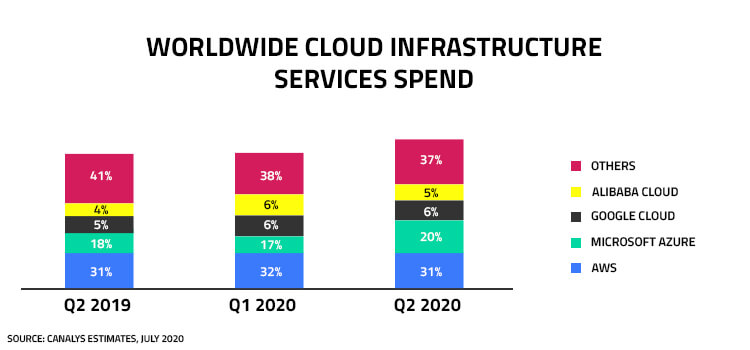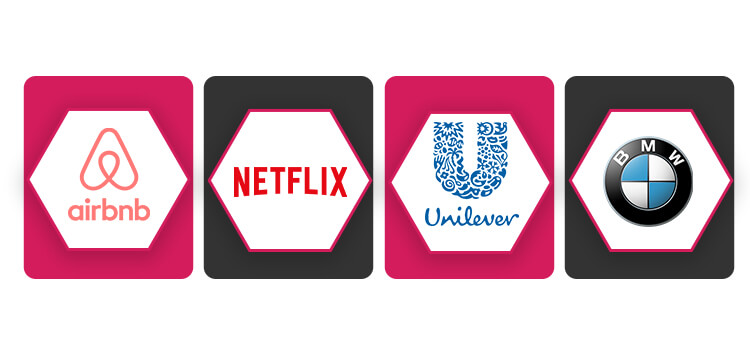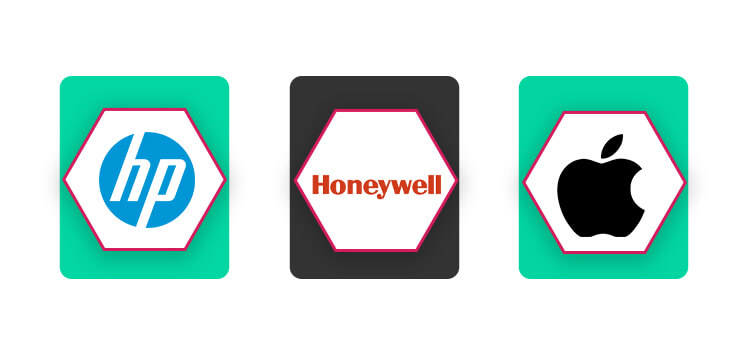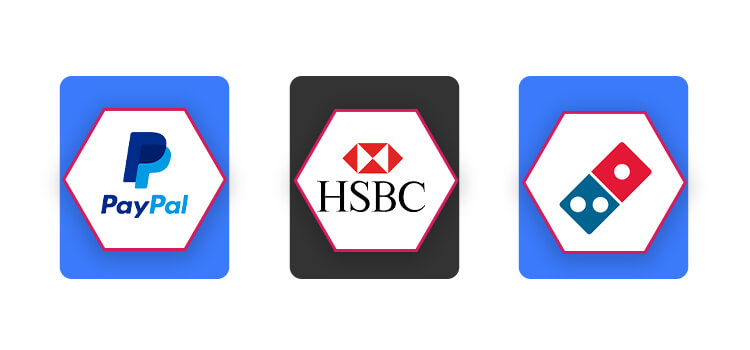Enterprises globally have made a switch from self-hosting to public cloud configuration. Cloud computing has travelled a long way since its start, so much that the question is not whether to go for cloud computing anymore, the question is which cloud platform to go for. Storing on the cloud is a major advantage for companies as they can invest their time on other development activities rather than being focused on maintaining their existing physical infrastructure.
As forecasted by the Gartner in July 2020 – The total market share for worldwide public cloud computing will grow to a total of $306.9 billion by 2021.
Public cloud consists of a wide range of cloud services and products including –
- Software-as-a-Service (SaaS),
- Infrastructure-as-a-Service (IaaS), and
- Platform-as-a-Service (PaaS).
Out of these three cloud services, IaaS is the most popular and demanded service in the cloud market. As per Gartner’s latest figures, the IaaS market is pegged to be worth a total of $64.3 billion by 2021.
Amazon Web Services (AWS), Microsoft Azure and Google Cloud Platform (GCP) are the global leaders for cloud services supplying resources like database, applications, and storage over the internet. There is fierce competition for the leadership spot in public cloud computing: AWS vs. Azure vs. GCP. It’s the defining cloud battle and this blog takes a descriptive look at the merit of these leading cloud computing vendors.
Selecting one cloud computing vendor over the other mostly comes down to customer preference and the workloads they are running. However, some key strengths and factors differentiate each provider from the other. These key strengths work a great deal in deciding which provider succeeds to stay at the number one spot in the leadership race for best cloud computing platform.
Where it all started
Amazon Web Services
AWS is a subsidiary of amazon.com and is the oldest and most experienced player in the cloud market. Owing to its first mover’s advantage, it has successfully established a bigger user base courtesy the trust users have in it and its reliability. Amazon has created a robust cloud computing platform for enterprises, which is divided between availability zones (AZs), regions and edge locations. AWS has 66 availability zones with more on the way. The robust infrastructure allows faster delivery of data globally. Services offered include the following:
- Developer tools
- Machine learning
- App integration
- Business productivity tools
- Compute functions
Interested in learning more about AWS and cloud computing? Cognixia offers Cloud Computing with AWS where we deep dive into advanced concepts and elements on the AWS platform. This course will also help you prepare thoroughly for the AWS Certified Solutions Architect – Associate Level certification exam. To know more about the course, visit here.
Microsoft Azure
Azure has found its ground under the leadership of CEO Satya Nadella, despite the market dominance by AWS. Microsoft Azure was launched in 2010 and over the years has created a solid platform to compete with AWS. Azure is designed to increase productivity and is popularly known as a top provider of IaaS. The platform is currently available in 54 regions and offers the following services:
- Big data
- Blockchain
- DevOps
- IoT integration
- Scalable data warehousing
- Game and app development
Cognixia is a Silver Partner with Microsoft and offers the complete portfolio of Microsoft trainings for corporates. We also offer an intensive training course for individuals to prepare for the AZ-104: Microsoft Azure Administrator certification exam. Clearing this exam will bestow the credentials of a Microsoft Certified Azure Administrator on the individual.
Google Cloud Platform
The Google Cloud Platform or GCP as it is commonly referred to, is offered by Google, and began its journey in 2011. Although GCP entered the market pretty late compared to its competition, with its profound technical expertise and industry-leading tools, it has created an easy-to-operate configuration. GCP is available in 20 regions around the world. Services include:
- App development
- Data management and storage
- Artificial intelligence
- Productivity tools
Market Share:
AWS has dominated the public cloud market since its inception in 2006. AWS leads with 33% of public cloud share with Microsoft Azure on the second place owning around 18% of the global market share. Google at third place owns 10% of the market share. Even though it seemed like things would slow down this year due to the COVID019 pandemic, the cloud computing domain has maintained its earnings and revenues. Amazon reported a revenue of $10.2 billion for Q2 2020 for AWS, while Microsoft reported a 47% revenue growth rate over the previous quarter. Google cloud which includes Google compute engine and G-suite reported a growth of 43% year-over-year. They generated $3 billion in revenue.

Customer Base
AWS has a strong and extensive global reach because of the first-mover advantage in the cloud computing market. This reach comes with the benefit of community support and a strong user base, in turn resulting in a chunk of a high-profile customer base for AWS. Big names such as Netflix, Unilever, BMW, etc. are all well-known AWS customers.

Microsoft Azure over the years has gained its share of loyal and high-profile customers too. Today, Azure has close to 80% Fortune 500 companies as its customers. Some of the big names include Apple, HP, and Honeywell.

Some of the major clients with Google Cloud Platform include HSBC, Dominos, and PayPal.

Pricing Model
AWS offers extremely competitive prices. This is especially due to the increasing competition in the cloud market. They even offer an AWS Pricing Calculator to estimate the cost while a free-tier service is also available for start-ups. Development teams can also buy servers for pricing by the second.
Microsoft Azure offers charges to users by the minute. They also offer various discounts and credits to both existing and new customers. Azure offers 750 hours of the Windows or Linux B1S addition of their primary computing platform, with a free trial for businesses wanting to test waters.
Google Cloud Platform strives to beat the prices offered by most of the cloud services providers. It offers customer-friendly pricing with a pay-per-minute billing model which helps users save a lot more money compared to AWS and Azure. As per Gartner – “Google uses deep discounts and exceptionally flexible contracts to try to win projects from customers that are currently spending significant sums of money with cloud competitors”.
Features
AWS offers a comprehensive list of features which allows you to gain access to computing power, data storage and other functionalities necessary for app development. Some of the highlights offered by AWS are as follows:
- Serverless cloud functions: Amazon Gateway and API run the code and scale it, which frees up the majority of your time so that you can invest the majority of time building the app.
- Storage: AWS offers the following storage options to choose from –
- Amazon Simple Storage Service
- Amazon Glacier
- The Amazon EBS
- Databases: Some of the databases and their uses are –
- Relational Database — Transactional Purposes
- Non-Relational Database – Internet-Scale Applications
- Data Warehouse — Analytics
- In-memory data Store — Caching & Real-time workloads
- Graph Database — Application with highly connected data
- Compliance and security: AWS offers maximum and high-level security to the data stored on its cloud.
- Mobile-friendly access: This includes two things –
- AWS mobile hub: It includes a console that helps you access AWS services. You can select and configure mobile app features, like content delivery and push notifications.
- AWS mobile SDK: This helps you directly access AWS services such as DynamoDB, S3 and Lambada.
- AWS Marketplace: AWS marketplace is an online store offering suitable software for your business needs. It includes one-click deployment and launches feature of the Marketplace which helps to launch the required software smoothly.
Microsoft Azure: Some of the main features offered by Azure are as follows –
- Data resiliency: Any information you keep on Azure storage has three copies, by default. If you face any challenges while accessing data, you will still have access to the two other copies.
- Data security: Azure lays a lot of emphasis on data security and encrypts data in multiple ways.
- Business continuity/Disaster recovery integration: Azure offers Azure Backup Agent and Azure Site Recovery for making backups during disaster recovery.
- Capacity management: Azure offers StorSimple and hybrid architecture storage to address all storage requirements of the business.
- Single-pane operations: It allows connecting various data sources and providing data insights.
Google Cloud Platform: Features offered by GCP are as follows –
- Cloud storage: Google Cloud Storage offers super-fast disks for persistent object storage. They also integrate Big Table technologies. such as, Big Query, Big Table, and Hadoop.
- Cloud functions: Google offers a fast serverless platform which allows building event-based microservices.
- Google Container Engine: It allows running docker containers triggered by Kubernetes
- Compute: GCP offers computing infrastructure in predefined or custom machine sizes to accelerate your cloud transformation.
Takeaway
AWS comes out on the top of all the major cloud providers by scoring more points in the cloud battle. However, Microsoft Azure and GCP are relentlessly working their way up the curve. AWS has a definite advantage of being the first one of its kind however Azure and GCP have their strengths. Enterprises using MS tools find it easier with Azure as it easily integrates MS tools with Azure clouds. And GCP offers the best pricing model for infrastructure, compared to other cloud providers. Therefore, the best way to figure out the best cloud provider is by choosing the best cloud provider for your specific needs.
Cognixia – world’s leading digital talent transformation company offers regularly updated training solutions for individuals as well as corporates in all emerging technologies including cloud computing. Cognixia is also a Silver Partner with Microsoft. Cognixia’s cloud training courses in the field of AWS and Microsoft Azure have consistently received exceptional feedback from all participants, offering everyone an opportunity to update their skills in the cloud computing domain. Our Cloud Computing with AWS training with help participants prepare thoroughly for the AWS Solutions Architect – Associate level certification exam, while our AZ-104: Microsoft Azure Administration training course helps participants prepare for the AZ-104 certification exam conducted by Microsoft for aspiring Azure administrators. To know more about our cloud trainings, visit here.

